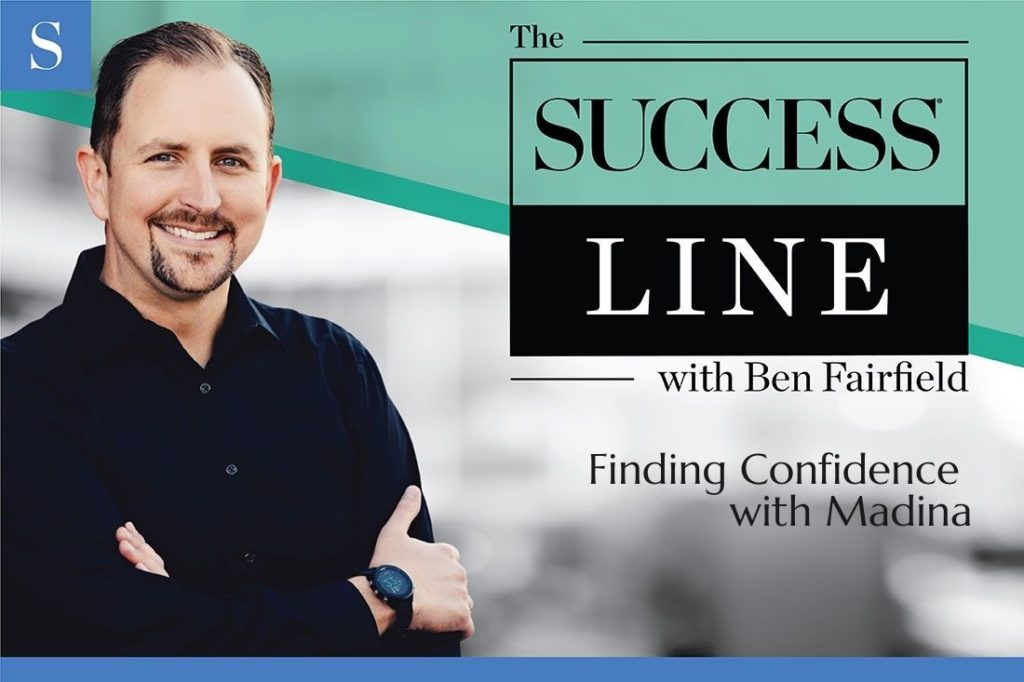This week on SUCCESS Line, we discuss the eight tenets of building self-confidence with Madina, an emigrant of the former USSR who now serves as a business coach. Madina wants to empower her female clients, who are often managing several priorities at once, to strive for outcome-driven results through the development of self-confidence. Since confidence is a challenge faced by nearly every human being, these tips will resonate with nearly all our listeners and readers, and better position you to achieve your goals.
1. List out your accomplishments and achievements
People get so busy doing that they often don’t take time to reflect on what has already been done. Reflection is essential because it can lend you the proper perspective. It also gives you specific instances of other challenges you’ve conquered to call to mind, so that you can empower yourself to face the next struggle with success.
2. Challenge bad thinking.
Fear kills more dreams than failure ever has, and often your fears don’t ever come to pass or even go to the extreme of what you’re envisioning. But because of this fear (aka false evidence appearing real), negative or inaccurate thinking can take hold. Therefore it’s incumbent upon you to challenge this negative self-talk by managing your thinking and questioning its accuracy. Although some degree of fear will always be present, if you acknowledge that it exists, you don’t have to let it determine your outcome.
3. Review personal and positive affirmations.
Madina gave an example in which she referred to someone calling themselves the “queen of negotiation” before entering a conversation with a customer. In order to progress, you have to believe in yourself. If you don’t have that belief, borrow someone else’s belief in you, then act accordingly.
4. Practice self-compassion.
Often, people are more critical of themselves than they are of anyone else. You would never judge someone by that same harsh standard. It’s about progress, not perfection. If as a leader you encourage those who report to you when they reach three-quarters of their goal, but give yourself grief, take a step back. Then, practice the same type of compassion you are showing to others.
5. Begin to let go of negativity.
We attract what we think about, which is why people who expect positive outcomes but live in extreme negativity often don’t reach their goals. While you can’t control what happens to you, you can control how you respond to what happens to you. And when you encounter adversity, think of the opportunities that can arise versus just feeling weighed down. This is when beautiful outcomes often occur.
6. Get outside your comfort zone.
You are never going to create a big world or a big impact by staying inside of what’s comfortable. By setting your intentions to achieve something that’s a bit of a stretch goal, you lean into possibility rather than simply accepting safety or assurance. This puts you on a path to accomplishing things you’ve never done before. It also launches you into a growth cycle, even if you don’t achieve the entirety of your goal.
Madina is an advocate of reframing action items as three results you want to achieve that day, rather than a lengthy to-do list that makes you feel defeated when you don’t tick off every item. If you’re unable to achieve those three results each day, examine your overall strategy, as maybe stepping outside your comfort zone and trying something new will net you more success.
7. Build self-awareness.
Although we live in a culture that celebrates the hustle, just because you do more doesn’t necessarily mean you’ll reach your goal—you could be doing too much of the wrong thing. By engaging in regular reflection, you’ll make sure how you fill your days and weeks is in line with who you are. Then you can make any necessary changes so that you’ll be well-positioned on the path to achieving what you want.
8. Set realistic goals.
We overestimate what we can do in one year, and underestimate what we can do in five years. The issue with setting wildly massive goals is when you don’t achieve them, negative self-talk occurs, your self-worth erodes and self-confidence drops. But by looking at where you want to be three to five years from today, envisioning how you are spending your time and determining what impact you want to be having, you can reverse engineer the actionable steps and goals to prepare you to become that person. You can pace out where you should be in one year, which will bring you closer to where you want to be in five years, and develop goals that are in line with your overall mission, vision and purpose.
The SUCCESS Line is no longer releasing new episodes on the SUCCESS Podcast Network, but you can still listen to the full conversation below.





